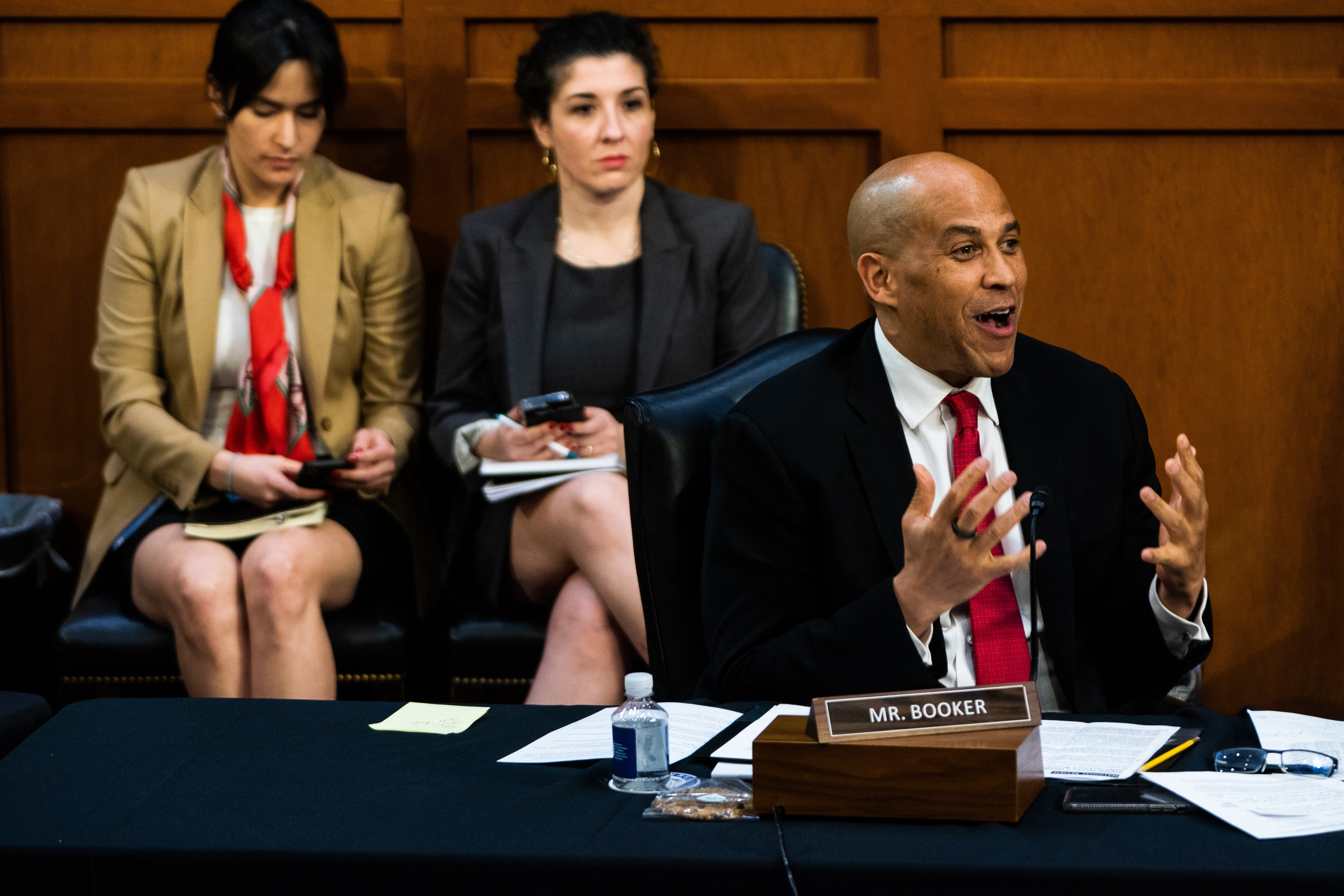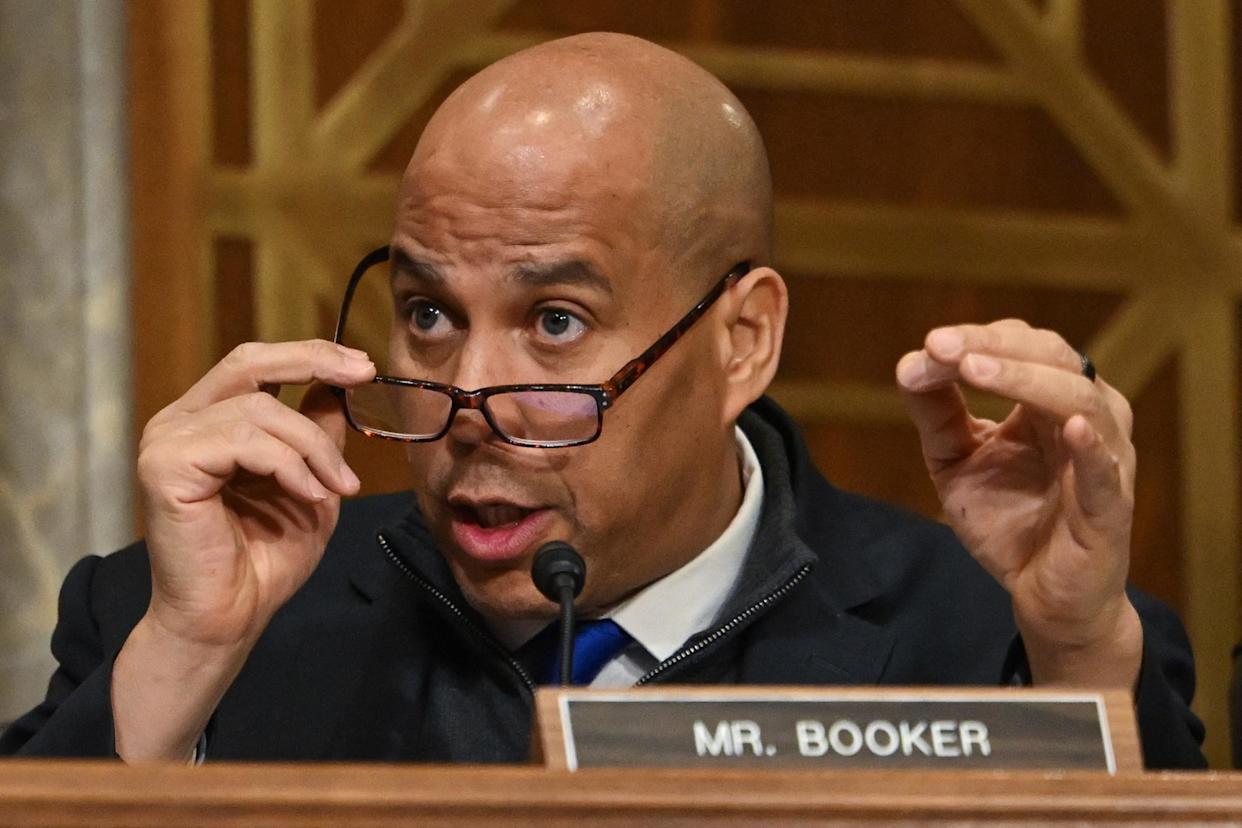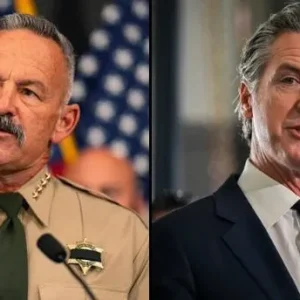In a move that has left political observers and Democratic loyalists reeling, Senator Cory Booker (D-NJ) became the lone Democrat to vote in favor of confirming Charles Kushner, father of Jared Kushner and a convicted felon, as the U.S. ambassador to France on May 19, 2025. The Senate’s 51-45 vote, with Booker breaking ranks to join 50 Republicans, has sparked a firestorm of criticism, with social media platforms like X erupting in accusations of hypocrisy and betrayal. Critics are demanding answers: Why would Booker, who recently gained praise for his 25-hour filibuster against the Trump administration, support a figure with such a controversial past for a prestigious diplomatic post? The decision, described by some as a “slap in the face to democracy,” has fueled speculation about Booker’s motives, his ties to the Kushner family, and the implications for his political future.

Charles Kushner, a New Jersey real estate magnate, was convicted in 2005 on 18 counts, including tax evasion, illegal campaign contributions, and witness tampering. The most notorious charge involved a shocking act of retaliation: Kushner hired a prostitute to seduce his brother-in-law, who was cooperating with federal investigators, and sent a secretly recorded video of the encounter to his sister, the man’s wife. Described by then-U.S. Attorney Chris Christie as “one of the most loathsome, disgusting crimes” he prosecuted, Kushner’s actions led to a two-year prison sentence, the maximum under a plea deal. President Donald Trump pardoned Kushner in December 2020, a move that raised eyebrows due to Kushner’s familial ties as the father-in-law of Trump’s daughter, Ivanka. Despite this history, President Trump nominated Kushner for the ambassadorship, calling him a “tremendous business leader, philanthropist, & dealmaker” on Truth Social.

Booker’s vote to confirm Kushner has drawn intense scrutiny, particularly given his public image as a progressive champion. In April 2025, Booker delivered a record-breaking filibuster invoking the “good trouble” of civil rights icon John Lewis, a move that bolstered his profile as a potential 2028 presidential contender. Yet, his support for Kushner has led critics to question his commitment to resisting Trump’s agenda. On X, political strategist Conor Rogers wrote, “Imagine doing a 24-hour filibuster to ‘Save Democracy’ and then being the only Democrat voting for the financial criminal Kushner because he raised you a bunch of cash. Booker is such a fraud.” Another user, @TheRickyDavila, fumed, “There’s literally no excuse for why Cory Booker felt the need to betray Democrats and democracy.”
Booker’s relationship with the Kushner family offers some clues to his decision. The New Jersey Globe reported that Charles Kushner supported Booker’s unsuccessful 2002 Newark mayoral campaign, steering significant funds to his bid. In 2004, amid Kushner’s legal troubles, Booker wrote a letter testifying to his character. The ties deepened over time: in 2013, Jared Kushner and Ivanka Trump hosted a fundraiser for Booker’s Senate campaign, raising $41,000. Booker later defended these connections, noting in 2017 that the Kushners were Democrats at the time, supporting figures like Hillary Clinton. More recently, Booker cited their collaboration on the First Step Act, a bipartisan criminal justice reform bill signed by Trump in 2018. In a statement to the Daily Beast, Booker explained, “One of the most important [advocates] was Charlie Kushner, whose experience in prison profoundly affected him and led him to be an advocate for needed reforms. Without his efforts, the bill wouldn’t have become law.”

Critics, however, remain unconvinced. Senator Patty Murray (D-WA) voted against Kushner, stating on X, “Charles Kushner was convicted of making false statements to the FEC and pleaded guilty to tax evasion & witness tampering. And Trump pardoned him. Of course, I voted NO.” On X, sentiments echoed this outrage, with one user sarcastically noting, “Cory, you continue to prove how you flip flop from one issue to another.” Some speculate that Booker’s vote reflects political calculations tied to New Jersey’s real estate and political networks, where the Kushner family wields significant influence. Others, like former Democratic pollster Adam Carlson, quipped, “Jersey gonna Jersey I guess,” suggesting local ties trumped party loyalty.
The confirmation comes at a delicate time for U.S.-France relations, strained by Trump’s trade policies and stance on the Ukraine war. At his Senate Foreign Relations Committee hearing, Kushner argued that his past mistakes made him “more qualified” for the role, citing improved judgment and values. Yet, Democratic Senator Tina Smith of Minnesota blasted the appointment, tweeting, “We’re voting on Jared Kushner’s dad (a convicted felon who Trump pardoned) to be Ambassador to France, sending a billionaire convicted felon (and relative) to serve as a top diplomat.” Former French ambassador Gérard Araud also expressed skepticism, advising people to “read [Kushner’s] résumé” on X.
Booker’s vote has sparked a broader debate about bipartisanship versus obstructionism in the face of Trump’s nominees. Some Reddit users argued that Democrats should adopt a hardline stance, with one commenting, “Republicans went full obstructionist against Obama, but Dems are still so attached to an antiquated value of bipartisanship.” Others suggested Booker’s vote might not end his career, given the electorate’s short memory, but the backlash has undeniably dented his progressive credentials. As the Senate confirmed Kushner by a narrow margin, with only one Republican, Lisa Murkowski (R-AK), voting against, the focus remains on Booker. Will he address the criticism head-on, or will this decision haunt his political ambitions? For now, the question burns: What was Cory Booker thinking?






